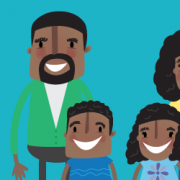This story works well in combination with the hands-on option entitled “fire safety rules.”
While you are driving, have your children look for a fire station or a fire engine. Use the questions provided below to set the stage for the story that follows.
Questions for discussion
- What kind of equipment does a firefighter need? (See the list below for essential firefighting resources.)
- What is the most important thing a firefighter needs to fight a fire?
Firefighting power for you and me
Graham was a firefighter. Ever since he was a young boy, he had wanted to drive a fire truck and help put out fires. He loved his job because he liked helping people who were in trouble. Graham also loved and followed Jesus. People would often thank Graham and his crew for the work they did and Graham would always say, “Remember to thank God too.”
One especially hot day in the middle of the afternoon, all the firefighters on duty were wishing they were relaxing at the local pool instead of sitting in the sweltering fire hall. Moments later, the alarm bell went. The 911 operator had details of a house on fire at 23 Beaverton Court.
Upon arriving at the house, Graham’s crew immediately began soaking the blaze with the water available in their truck. Meanwhile, two other crewmen were working to open the nearby fire hydrant. Suddenly Graham received a message over the radio.
“Graham, we have a problem. The hydrant is stuck.”
Graham called dispatch. “Is there another pump on the way?” he asked.
“Yes, it should be there in three minutes. Over.”
“Three minutes is too long,” Graham thought. “We need to get more water on this blaze now.” Graham turned and looked at the fire hydrant where two of his crew were desperately working to open the hydrant.
“Please God,” Graham prayed, “we need water so we can do our job.”
Moments later the crew heaved one more time against the valve on the hydrant. This time it opened and water began to gush through the hose!
The fire crew turned the hose on the blazing house fire. Soon the firefighters were able to approach the front door of the house. Using an axe and a Halligen bar, they opened the large wooden front door. As soon as the door was open, a frightened little wiener dog ran out. Fearing that there might be people inside as well, Graham and another crewman searched the house.
Thankfully they were able to check the house completely, making sure that there were no people or other pets inside. As they were putting out the last of the flames, a van pulled up to the scene. It was the family who lived in the house. The children picked up their dog, hugged him and cried. They were so thankful that their beloved canine, Frankfurt, had been rescued.
Graham drove home from work with a grateful heart. They had been able to save the family’s pet and had kept the blaze from spreading to the nearby houses. Sitting at the supper table with his family, Graham told his wife, his son, Josh, and daughter, Jesse, about the house fire and the faulty hydrant. For their Bible reading that night Graham read from Romans 8:7-10. It said, “The sinful mind is hostile to God; it does not submit to God’s law, nor can it do so. Those controlled by the sinful nature cannot please God. You, however, are not controlled by the sinful nature but by the Spirit, if the Spirit of God lives in you. And if anyone does not have the Spirit of Christ, they do not belong to Christ. But if Christ is in you, your body is dead because of sin, yet your spirit is alive because of righteousness.”
This all sounded pretty complicated to Jesse and Josh, until Graham explained the similarities between fighting sin and fighting fires.
Graham said, “Think of sin as the fire. Just as firefighters use water to fight a fire, the most important tool God gives us to fight sin is His Holy Spirit. Firefighters get connected to the source for their water – either a fire hydrant or their fire truck. When I had no water to fight the fire today, there was nothing I could do in my own strength to put it out.” Graham continued explaining, “Sin is like the fire; we can’t fight it on our own. What do we need to help us fight sin?” he asked.
“God’s Spirit?” Josh answered.
“Ding, ding, ding,” Graham smiled, making an amusing fire alarm sound. “That’s right. Only through God’s Spirit living in us can we win the battle against sin. God’s Holy Spirit is like the water pouring through the hose that helped us fight that fire today. Our connection to God is through prayer. Let’s pray right now and ask God to give us His Spirit to help us beat sin like we beat that fire today.”
Firefighting equipment
Firefighters use many pieces of specialized equipment to fight fires. Here’s a list of some essential items:
Clothing | A firefighter’s clothing is made from Nomex, a flame-resistant material, and includes a balaclava, a helmet, a bunker coat, bunker pants, gloves and leather boots.
SCBA | SCBA stands for “Self-Contained Breathing Apparatus.” This allows a firefighter to breathe fresh air from tanks carried on their back, instead of breathing in smoke.
Rescue equipment | A fireman’s axe and a Halligen bar (which resembles a pickaxe) help firemen gain quick access to locked areas. Extrication tools like the jaws of life, ropes, ladders and aerial towers help firefighters access areas they otherwise could not get to.
TIC | TIC is an abbreviation for Thermal Imaging Camera. An infrared camera helps a firefighter see, even in smoky conditions.
Two-way radios | Two-way radios and other communication devices allow firefighters to talk with each other, helping them work as a team.
Fire truck | In fire halls a basic fire truck is also known as a “pump” because it pumps water for the firefighters to use. Other trucks are known as “squads” if they are equipped with specialized rescue equipment. The truck that has a ladder and basket for reaching high areas is called an “aerial” or a “tower.”
Water | Most fire trucks carry about 500 gallons of water. This is a lot of water, but not enough to put out a house fire. In the case of larger fires, firefighters need to attach their hoses to a fire hydrant. Water is the most important thing for a firefighter to have at a fire because without water and a means to pump the water, a firefighter is powerless.
Key concepts
We all fight a kind of fire every day, and that fire is sin. God gives us many tools to fight against it: the Bible, wise friends and parents, and our own conscience. Just as water fights a fire, the most important tool God gives us to fight sin is His Holy Spirit. Firefighters know they must connect to a water source through a fire hydrant or their fire truck. We connect with the power of God’s Spirit through prayer.
Relevant Scripture
Romans 8:6-11 “The mind of sinful man is death, but the mind controlled by the Spirit is life and peace; the sinful mind is hostile to God. It does not submit to God’s law, nor can it do so. Those controlled by the sinful nature cannot please God. You, however, are controlled not by the sinful nature but by the Spirit, if the Spirit of God lives in you. And if anyone does not have the Spirit of Christ, he does not belong to Christ. But if Christ is in you, your body is dead because of sin, yet your spirit is alive because of righteousness. And if the Spirit of Him who raised Jesus from the dead is living in you, He who raised Christ from the dead will also give life to your mortal bodies through His Spirit, who lives in you.”









